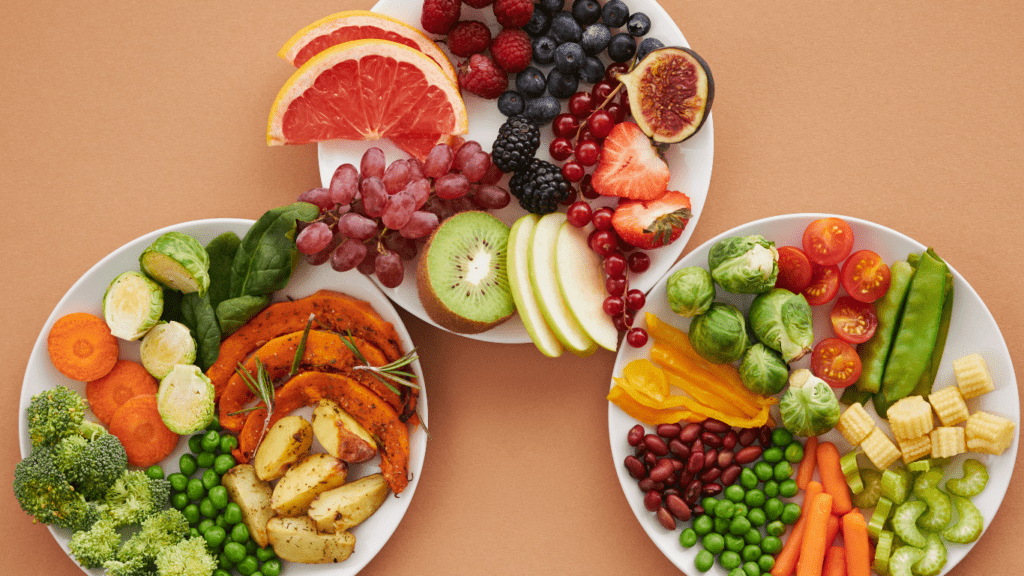Are you looking to enhance your diet and nutrition in a sustainable and delicious way? Growing your own produce at home could be the answer you’ve been searching for. As a passionate advocate for healthy living, I believe that cultivating fruits and vegetables in your backyard not only boosts your intake of fresh, nutrient-rich foods but also promotes a deeper connection to what you consume.
In this article, I’ll share valuable insights on how homegrown produce can revolutionize your approach to nutrition. From the convenience of having a bountiful supply of organic ingredients at your fingertips to the satisfaction of knowing exactly where your food comes from, the benefits are endless. Join me as we explore the transformative power of homegrown goodness for a healthier, happier you.
Benefits of Homegrown Produce for Diet and Nutrition
Growing my own produce at home has significantly enhanced my diet and nutrition. Here are the key reasons why homegrown produce is beneficial:
Enhanced Nutritional Content
I’ve noticed that the fruits and vegetables I grow at home are richer in vitamins and minerals compared to store-bought produce. This is because they are harvested at peak ripeness, ensuring maximum nutritional value. By consuming homegrown produce, I am fueling my body with essential nutrients that promote overall health and well-being.
Freshness and Flavor
The freshness of homegrown produce is unmatched. The moment I pluck a ripe tomato or a crisp cucumber from my garden, I can immediately taste the difference. The vibrant colors, crisp textures, and intense flavors of homegrown fruits and vegetables elevate every meal. Knowing that I am consuming fresh, organic produce adds a layer of satisfaction to my dining experience.
Starting a Home Garden
Starting a home garden can be a rewarding and fulfilling experience. It allows me to have easy access to fresh and nutrient-rich produce right outside my door. By growing my own fruits and vegetables, I can enhance my diet and nutrition sustainably.
- Choosing the Right Location
In selecting the right location for my home garden, I prioritize areas that receive ample sunlight throughout the day, as most fruits and vegetables require at least 6-8 hours of sunlight to thrive. I also consider proximity to a water source for convenient watering and good air circulation to prevent diseases. Additionally, I look for a spot with well-draining soil to ensure the plants’ roots stay healthy and avoid waterlogged conditions.
- Selecting Plants for Nutritional Value
When choosing plants for my home garden, I focus on selecting varieties that are not only delicious but also highly nutritious. I opt for fruits and vegetables that are rich in essential vitamins, minerals, and antioxidants to boost my overall health and well-being. Some nutrient-packed options include leafy greens like spinach and kale, colorful bell peppers, and vitamin C-rich berries like strawberries and blueberries. By growing a variety of nutrient-dense plants, I can ensure that I’m getting a wide range of essential nutrients in my diet.
Managing Your Home Garden
Maintaining a home garden can be a fulfilling experience that allows me to have easy access to fresh produce and enhance my diet sustainably. Choosing the right location for my garden is crucial. I focus on factors like sunlight exposure, proximity to a water source, air circulation, and soil drainage to ensure the plants thrive.
Organic Gardening Techniques
In my home garden, I adhere to organic gardening techniques. I avoid synthetic chemicals and instead rely on natural solutions like compost and organic fertilizers to nourish the soil and promote plant growth. By steering clear of pesticides and herbicides, I prioritize the health of both my family and the environment, creating a sustainable ecosystem in my backyard.
Watering and Maintenance Tips
Watering and maintenance are key aspects of managing a thriving home garden. I ensure my plants receive adequate water based on their individual needs, preventing both underwatering and overwatering issues. Regular inspection for pests and diseases, proper pruning, and weeding help me maintain a healthy garden ecosystem. By staying attentive to my plants’ requirements, I promote their growth and productivity, reaping the benefits of homegrown, nutrient-rich produce.
Health Benefits of Eating Homegrown Produce
Eating homegrown produce offers numerous health benefits that contribute to overall well-being. Let’s explore how consuming fruits and vegetables from your garden can positively impact your health.
Boosting Immune System
Growing and consuming homegrown produce can play a vital role in boosting my immune system. Fresh fruits and vegetables packed with essential vitamins, minerals, and antioxidants strengthen my body’s defense mechanisms, helping me stay healthy and ward off illnesses effectively.
Reducing Risk of Chronic Diseases
By incorporating homegrown produce into my diet, I reduce my risk of chronic diseases. Nutrient-dense fruits and vegetables cultivated in my garden can lower the chances of developing conditions such as heart disease, diabetes, and certain types of cancer. Including a variety of colorful produce ensures I benefit from a range of nutrients vital for disease prevention.
Overall, the health benefits of eating homegrown produce extend beyond just nutrition, providing me with a source of fresh, wholesome ingredients that support my well-being.

 Carolyna Riteralo is a passionate contributor to the project, focusing on sustainable urban development. With her background in architecture and urban planning, she provides valuable perspectives on integrating green spaces and eco-friendly designs into urban environments. Carolyna works collaboratively with the team to implement strategies that enhance community well-being and foster a connection with nature. Her dedication to creating greener cities makes her a vital member of the project, as she helps shape initiatives that promote resilience and improve the quality of urban life.
Carolyna Riteralo is a passionate contributor to the project, focusing on sustainable urban development. With her background in architecture and urban planning, she provides valuable perspectives on integrating green spaces and eco-friendly designs into urban environments. Carolyna works collaboratively with the team to implement strategies that enhance community well-being and foster a connection with nature. Her dedication to creating greener cities makes her a vital member of the project, as she helps shape initiatives that promote resilience and improve the quality of urban life.